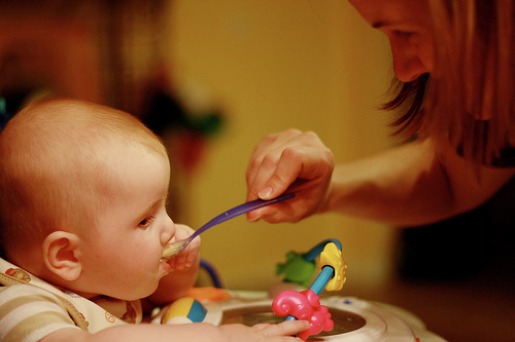What is a “feeding relationship”?
A “feeding relationship” basically refers to all the interactions between you and your baby that have to do with feeding. This includes choosing the food, eating, and attitudes and actions related to food and eating.
A healthy feeding relationship is important for a number of reasons. A good feeding relationship helps your baby develop a positive association around food and eating, helps them further develop their cues for hunger and satiety (fullness) to regulate how much they eat, now and later in life.
The earlier parents are aware of this and work towards building a healthy feeding relationship, the better. Research shows that children who are allowed to decide when they have had enough to eat grow up with less chance of having weight or eating problems later in life. A happy, healthy feeding relationship is essentially one without battles and can positively impact all aspects of the parent-child relationship.
Children are a lot smarter than you.
Children have an inherent ability to regulate their needs. Successful feeding occurs when parents pay attention to these cues from their child. Before they can speak, infants have ways of showing you their preferences about amounts and types of foods, and when they want to eat.
Gone are the days of using the airplane spoon to trick your baby into opening their mouths, or using rewards to get kids to polish off their vegetables. Research has shown that some of the old ways of doing things may actually do more harm than good. The new food rules for feeding children, according to Ellyn Satter, dietitian and expert in child nutrition, encourage a division of responsibility between the parent and the child.
The three W's
Your role, as the parent, is to decide:
- What: What is served
- When: When it is served
- and Where: Where to eat
Forcing your child to try new foods, or coercing them into eating everything on the plate is going to have the opposite effect you want it to in the long term. Children who are forced to eat a new food are usually less inclined to eat it or to try other new foods in the future.
As for the where, eating at the table with the family has been shown to have a positive impact (as opposed to eating in front of the TV or running around) and sets structure to the eating environment. Make mealtime a relaxing, pressure-free and enjoyable experience. A good feeding relationship will be less stressful for all involved.

 RSS Feed
RSS Feed

